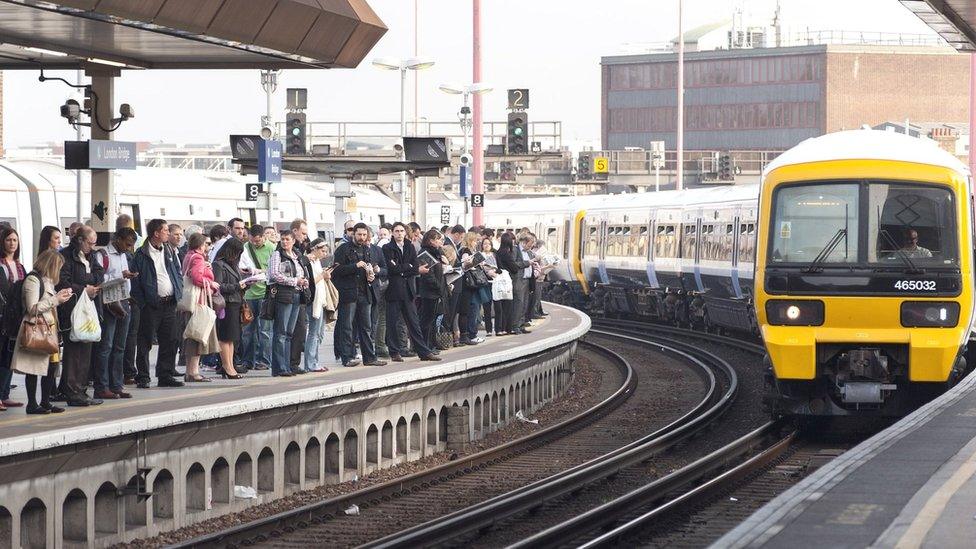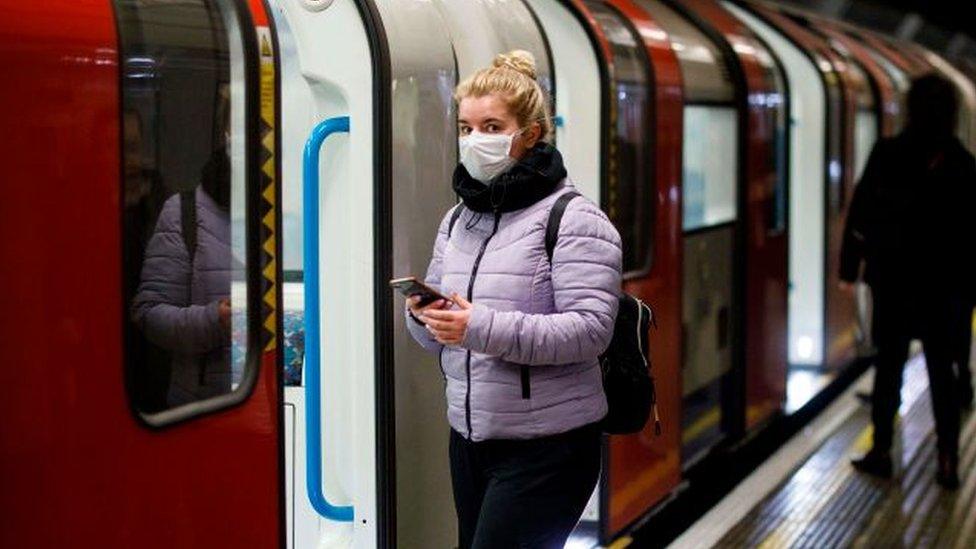Coronavirus: Commuters could be asked to check their temperature
- Published

Commuters could be asked to take their temperature before leaving home as part of proposals to make public transport safer.
It is understood to be among measures being considered for when the coronavirus lockdown is eased.
A Department for Transport (DfT) spokesperson said No 10 would continue to be guided by science.
Next Thursday, the PM will set out a "road map" on how to restart the economy and reopen schools.
Boris Johnson's "comprehensive plan" will also explain how people might travel to work and make life in the workplace safer.
A fever - a temperature above 37.8C - is one of the two main symptoms of the virus - the other is a dry, continuous cough.
It can make you feel warm, cold or shivery.
SCC, a British company with a system that uses thermal imaging cameras to detect people's temperatures, told the BBC that a large regional public transport body in the UK had expressed interest.
But scientists warn the system, which is being trialled at some hospitals and at Bournemouth airport, will not be able to detect people who have been infected with the coronavirus but who do not have a fever.
Government sources told the BBC that no decision has yet been made and that temperature checks weren't necessarily a priority.

PUBLIC TRANSPORT: Is it safe to travel?
A SIMPLE GUIDE: How do I protect myself?
FACE MASKS: Should I be wearing one?
WILL I GET PAID IF I CAN'T WORK? The rules on sick pay, wages and time off

A DfT spokesperson said: "Experts are constantly looking at best practice around the world", and the government would carry on being "guided by the scientific evidence that is available".
People should carry on staying at home and avoid using the transport network if possible, they added.
The prime minister has said the UK is "past the peak" of the virus outbreak, but stressed the country must not "risk a second spike".
Face masks, he said, would be "useful" as part of the strategy for coming out of lockdown "both for epidemiological reasons but also giving people confidence they can go back to work".
It comes as Health Secretary Matt Hancock said on Friday the government had provided more than 122,000 coronavirus tests on Thursday, surpassing its target of 100,000 daily tests by the end of April.
The total testing figure includes 27,497 kits which were delivered to people's homes and also 12,872 tests that were sent out to centres such as hospitals and NHS sites.
Some 27,510 people have now died in UK hospitals, care homes and the wider community after testing positive for coronavirus.
- Published6 October 2021

- Published30 April 2020

- Published25 April 2020
